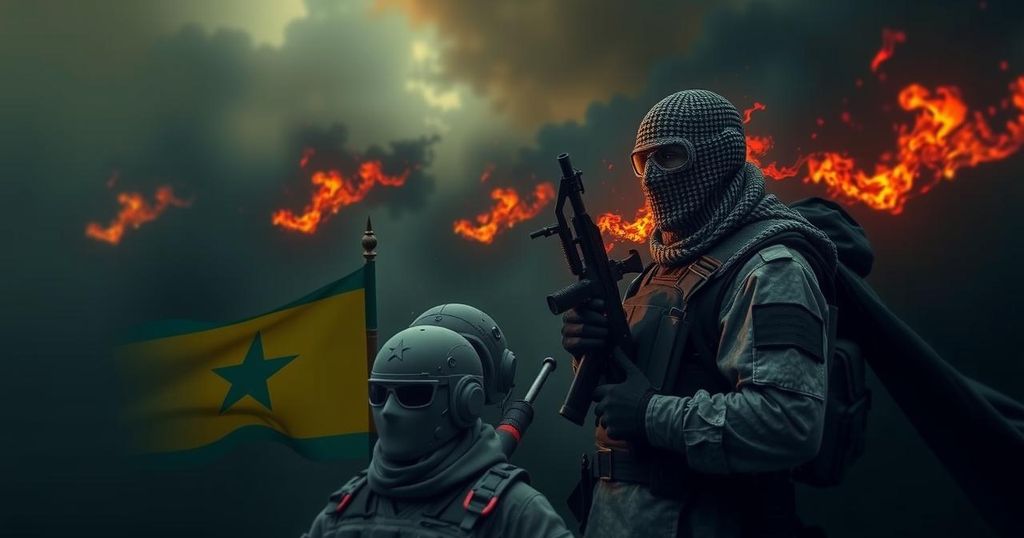Hezbollah is reportedly not participating in the ongoing conflict in northern Syria following significant losses in its recent confrontation with Israel. The group’s military capabilities have been weakened, with a withdrawal of many fighters back to Lebanon. Analysts suggest that Hezbollah’s role in Syria has diminished, focusing instead on domestic issues and re-establishing its strength after the conflict.
Hezbollah is reportedly abstaining from involvement in the ongoing conflict in northern Syria, particularly following a recent offensive by rebel groups, led by Hayat Tahrir al-Sham, which captured regime-held territories. Despite its significant role in supporting President Bashar al-Assad since the onset of the civil war in 2011, Hezbollah’s participation seems unlikely in this renewed fighting, especially after suffering substantial losses in its recent conflict with Israel. Reports indicate that many of its fighters have been withdrawn from Syria to concentrate on the situation in Lebanon.
The Lebanese group has faced challenges following the cessation of hostilities with Israel, which left a considerable impact on its military capabilities and leadership structure. Recent Lebanese media reports suggest that while some Hezbollah fighters may remain active in specific border areas such as al-Qusayr and Bloudan, their overall role in Syria has diminished significantly. Observers noted that the group has redirected its resources and focus towards addressing domestic issues and stabilizing its position in Lebanon.
Analysts have expressed skepticism about Hezbollah’s re-engagement in Syrian conflicts due to the potential political and military ramifications that such a decision could provoke, both locally and regionally. The Assad regime, it appears, has also distanced itself from the pro-Iranian Axis of Resistance to reduce tensions with Israel.
As Hezbollah grapples with the heavy toll from its recent conflict with Israel, estimates suggest that the group has incurred unprecedented losses, including thousands of fighters and crucial technical staff. The exact numbers remain uncertain, impacted by ongoing research for missing members amidst the destruction caused by sophisticated weaponry. What remains evident is that Hezbollah must navigate not only its military capacity but also the evolving political landscape in the region, making the prospect of renewed intervention in Syria complicated and fraught with risk.
Hezbollah has historically played a pivotal role in the Syrian civil war by supporting President Bashar al-Assad. However, following a fierce military confrontation with Israel that concluded recently, Hezbollah has experienced significant deprivation in terms of manpower and equipment. Reports suggest a recent withdrawal of Hezbollah fighters back to Lebanon, as the group focuses on addressing its losses and enhancing its domestic standing amid an evolving geopolitical landscape. The ongoing conflict in Syria presents complexities that Hezbollah may not be prepared to tackle under the current circumstances.
In summary, Hezbollah’s current stance regarding the ongoing conflict in Syria appears to be one of non-involvement, primarily driven by recent losses in its military confrontation with Israel, a shift in strategic focus towards Lebanon, and changing dynamics with the Assad regime. The implications of a diminished role in Syria may also reflect a cautious approach to avoid escalating tensions with regional powers, thereby preserving its domestic influence and stability. Thus, Hezbollah may focus on consolidating its position at home rather than engaging in further military entanglements outside Lebanon.
Original Source: www.newarab.com







